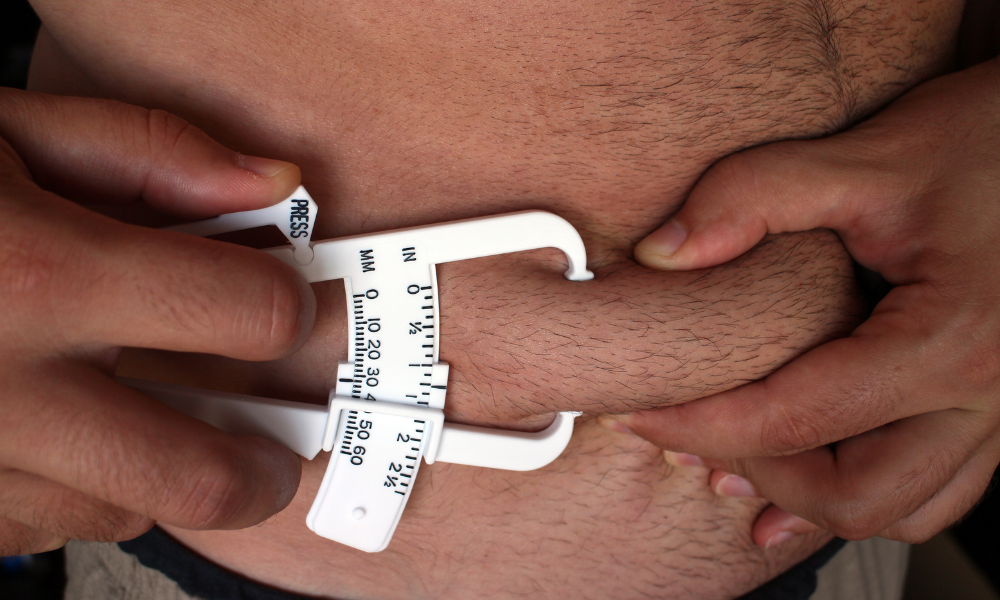How To Calculate Your BMI

In a world where health and fitness are paramount, understanding your Body Mass Index (BMI) is a crucial step towards maintaining a healthy lifestyle.
BMI is a simple yet effective tool that helps you gauge whether your weight falls within a healthy range for your height.
This article will provide you with a comprehensive guide on how to calculate your BMI and why it's essential for your overall well-being.
What is BMI?
Before we dive into the calculations, let's grasp the concept of BMI. BMI is a numerical value derived from your height and weight.
It's used to categorize individuals into different weight classes, such as underweight, normal weight, overweight, or obese.
It's a valuable indicator of your body's fat percentage and can serve as a starting point for understanding your health.
Calculating Your BMI: The Formula
Calculating your BMI is a straightforward process.
You can use either the imperial system (inches and pounds) or the metric system (centimeters and kilograms) to compute it. Here's how:
Using the Imperial System
- Step 1: Measure Your Weight (in pounds) - Begin by stepping onto a scale and recording your weight in pounds.
- Step 2: Measure Your Height (in inches) - Stand upright without shoes and measure your height in inches.
Step 3: Calculate Your BMI - Use the following formula:
BMI = (Weight in pounds / (Height in inches * Height in inches)) x 703
Using the Metric System
- Step 1: Measure Your Weight (in kilograms) - Weigh yourself and record your weight in kilograms.
- Step 2: Measure Your Height (in centimeters) - Stand without shoes and measure your height in centimeters.
Step 3: Calculate Your BMI - Use the following formula:
BMI = Weight in kilograms / (Height in meters * Height in meters)
Interpreting Your BMI
Now that you've calculated your BMI, it's crucial to understand what the number means:
- BMI Below 18.5 (Underweight) - If your BMI falls below 18.5, it indicates that you may be underweight, which can have health implications. Consult a healthcare professional for guidance.
- BMI 18.5 to 24.9 (Normal Weight) - Falling within this range is ideal. It suggests that your weight is proportionate to your height, and you're in good health.
- BMI 25 to 29.9 (Overweight) - If your BMI falls here, it indicates that you're carrying excess weight. Consider making lifestyle changes to improve your health.
- BMI Above 30 (Obese) - A BMI over 30 suggests obesity, which can lead to various health issues. Seek guidance from a healthcare provider to address this concern.
Why Is BMI Important?
Understanding your BMI is essential for several reasons:
- Health Monitoring - It provides a quick snapshot of your weight status and allows you to track changes over time.
- Risk Assessment - A high BMI is associated with an increased risk of health problems like diabetes, heart disease, and certain cancers.
- Treatment Guidance - Doctors often use BMI as a starting point for recommending treatments and lifestyle changes.
- Fitness Goals - If you're on a fitness journey, knowing your BMI can help you set realistic weight loss or gain goals.
Conclusion
In conclusion, calculating your BMI is a valuable step towards maintaining a healthy lifestyle.
It's a simple yet effective tool that can provide insights into your weight and overall health.
Remember that while BMI is a useful indicator, it's not the only factor to consider.
Always consult with a healthcare professional for a comprehensive assessment of your health.
Frequently Asked Questions
Is BMI the only indicator of health?
No, BMI is just one of many indicators. It doesn't take into account factors like muscle mass and body composition, so it's essential to consider other factors as well.
Can my BMI change over time?
Yes, your BMI can change due to changes in weight and height. It's advisable to monitor it regularly for a more accurate assessment.
What's the ideal BMI for athletes?
Athletes often have higher BMIs due to increased muscle mass. The ideal BMI for an athlete may differ from the standard guidelines.
Is BMI a diagnostic tool?
No, BMI is not a diagnostic tool for specific health conditions. It's a screening tool that helps identify potential weight-related issues.
Can I improve my BMI through diet and exercise?
Yes, making healthy dietary choices and engaging in regular physical activity can help you achieve and maintain a healthy BMI.
